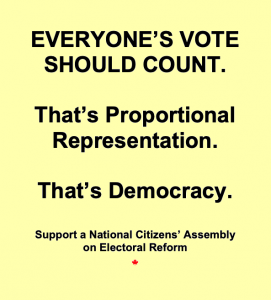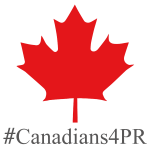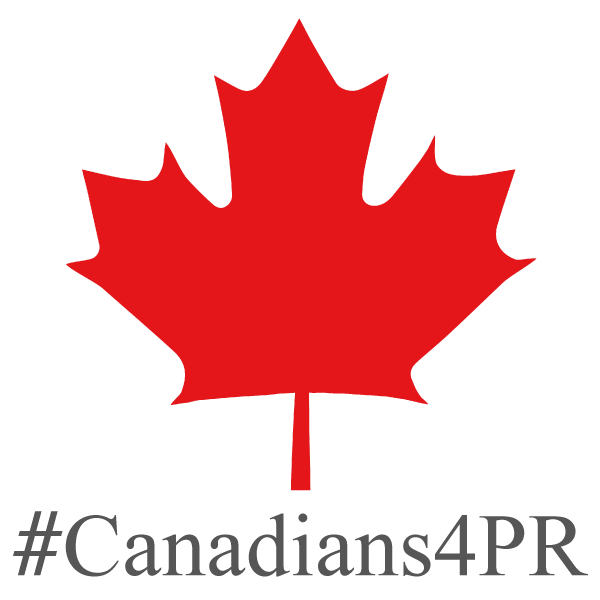
It’s a no brainer, right?
We assume, in a democracy, that we should have the freedom to vote for whom we want and have that translate directly into representation for us.
We assume, in a democracy, that the government should be made up of the same proportion of representation for each party as what people voted for.
We assume, in a democracy, that the point of government is to have representation that is an accurate cross-section of the desires of the population, as this is the fairest way we have to make decisions for an entire country.
We assume, in a democracy, that the winning candidate in a riding must have earned more than 50% of the votes.
We assume, in a democracy, that when a party is declared to hold a majority, it means more than 50% of voters must have voted for them.
What could be simpler?
Unfortunately, as many of us already know, none of the above is true in Canada.
If our vote didn’t go to the winner in our riding, it has no effect on the election and we don’t end up with any representation.
The government is made up of representation that has no relationship whatsoever to the actual percentage of votes each party received.
The government is usually a skewed representation of the values of one party that ignores the wishes of the voters of all other parties.
The winning candidate in a riding can win with as little as 20% of the votes so long it is more than everyone else’s. Or in other words, a candidate can win a seat with 80% of a riding voting against them.
A party can win more than 50% of the seats when in reality, usually fewer than 40% of voters voted for them.
I don’t think that is a democracy in anyone’s book.
Let’s turn the page and start a new chapter.
If you support proportional representation, then make supporting a National Citizens’ Assembly on Electoral Reform an issue for you this election.


